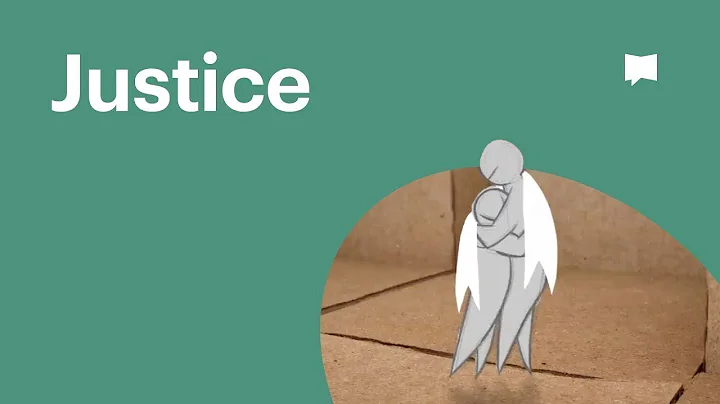
The picture comes from the Internet
"Parenting Sharing - Start My Engine Now"
This is Xinba's 195th original insurance article
Author: Xinba

Inscription:
It is in the Bible A very classic issue is justice Kindness comes first. The same principle applies to children. If we are kind to our children, we will have a good relationship with them. If the children are lazy, we will help them clean up, take the initiative to take them to various fun places, spend time chatting with them, and do things they love to do. Children will definitely like us very much, but the problem is that children tend to be self-centered, lazy, and lazy. Every time we ask children to do something, they will feel resentful.
On the contrary, if we ask the children to respect first, explain the rules clearly and stick to them, the children can do things well and take the initiative. Although the children will complain a lot, as long as we relax a little later and play with the children , children will respect their parents very much.

Part One, The Gift of Initiative
One of the best gifts we can give our children is to help them establish a proactive attitude, and positivity means taking the initiative to take the first step. The child needs to understand that his problems must be solved and his demands must be responded to, not from others, but from himself.
Life requires taking initiative in order to survive and succeed. When a child is young, he will rely heavily on his caregivers to provide his daily needs. But dependence is not the same as passivity. Even if we grow up in the future, we still need to actively rely on others. Similarly, initiative and self-sufficiency are different. Active people do not try to do everything by themselves. Taking the initiative means to do whatever you can, and then actively look for what you lack to help you complete yourself.
People can only be satisfied in relationships. Perhaps because of this, God designed people to be weak and limited but with unlimited potential. Therefore, we need to deeply understand our own limitations and rely on others. In addition, we can Take the initiative to do many things that benefit others and yourself.
A child needs to take the initiative to make his needs known, resist evil, maintain friendships with others, do housework, do schoolwork, and as he matures, be able to gradually assume more burdens in his life.
Children are like untamed wild horses, using willpower to stubbornly resist the restrictions and consequences of their parents until they learn to notice that reality is different from what they think. After they confront reality several times in life, they will finally kneel before the reality given by God and begin to learn to tame their aggression, keep it within an acceptable range, and use it for constructive goals.
A child's initiative is a gift from God, which can provide a lot of help:
- 1. Learn appropriate words and deeds from failures and consequences
- 2. Realize that his problems and needs must be solved by himself
- 3. Develop self-control and mastery The ability to live on your own
- 4. Take care of yourself by yourself
- 5. Know how to avoid dangerous situations and abnormal relationships
- 6. Move towards those who will receive comfort and help
- 7. Structure his love in a meaningful and effective way. and emotions, so that he can maintain a relationship with God and other people.
Usually when we talk about children and boundaries, many mothers will ask, "I have set boundaries for my children, but he keeps obstructing them. What should I do?" ", in fact, children will have such a reaction, but the job of parents is to set limits in love and enforce the consequences. The child also has things to do. His job is to use his active attacks to test the limits set by his parents and learn from them reality, relationships and responsibility.This is a divine and ordered training system.

Part 2, The Problem of Passivity
Passive, inactive or unresponsive, is the opposite of active and proactive. Passive children are at a standstill in life, always waiting for others or something. When a child is passive, he no longer learns to be his own steward, but learns to let others control him and act for him.
Passive children have difficulty making friends, finding interests or passions, and are easily influenced or influenced by aggressive friends. They follow others and do not create their own life.
Taking a passive stance is not an advantage but a disadvantage. In the absence of proactive constraints, evil will grow. Passive people unknowingly become those who associate with evil because they do not resist. We cannot confuse passivity with patience. Patience is a positive characteristic. It is to restrain the bad impulses in our hearts.
The biblical message about activeness and passivity, as The US Marine Corps slogan says, "A bad decision is better than no decision", which is why, all things being equal, active children are better than passive ones. Children learn and mature faster, which also means that parents have more raw materials to process and influence their children.

Part 3: What parents can do
Passive children generally have boundary issues that are irresponsible or refuse to make decisions for themselves. They easily avoid difficulties, and it is more difficult for passive children to engage in the learning process. Here are some ways children behave passively:
- 1. Procrastination, always putting off responding to parents’ instructions until the last minute.
- 2. Neglect, turning a deaf ear to parents’ instructions.
- 3. Lack of initiative and risk-taking, and not liking to make new friends. Friends, new sports, new things, like to stay within familiar activities and patterns.
- 4. Live in a fantasy world, like to be immersed in your own world, and will shrink back if there is a problem or discomfort
- 5. Passive resistance, resisting parents' requests will be expressionless, and do not use words to express
- 6. Unsociable
- 7. Fear, One possible reason for the child's passivity is that his inner fear and anxiety prevent him from taking the initiative. He is afraid of close relationships, afraid of getting close to others, is easily hurt by others, and appears shy, reserved and awkward with others. In this case, it is necessary to deliberately take the child to participate in more activities
- 9. If the child is afraid of conflict, the child will easily retreat when encountering difficulties or conflicts. At this time, the child should normalize the conflict and pain he experiences. It means that conflict is inevitable, but we can survive. For example, a mother sent her daughter to learn karate . Every day her daughter would hug her legs and cry. But the mother told her daughter that she must persist for three months no matter what. After three months, the daughter can choose to continue or give up. As a result, her daughter was promoted three months later and she chose to continue.
- 10. We are afraid of failure. We also need to let our children know that failure is also a normal part of our lives. Families talking to their children about the moments when family members fail can help children view failure more correctly and how to laugh at themselves.
- 11. Unable to structure goals and wishes. and goals help children overcome laziness, "whatever you wish for comes, it is the tree of life." When children face conflicts, they usually fall into a passive position. In fact, it is not necessarily that they are lazy, it may also be that they cannot think of steps to take to get what they want. Children often have a low tolerance for frustration. We are not trying to help children escape from problems, nor are we trying to save them from the structure of learning. Home is not a place for children to hide from life, but a place where they learn skills and learn to do things. We will help them develop self-confidence and work towards goals that interest them.
- 12. Expect the unexpected. Children will expect their parents to automatically understand their needs, but we need to help children learn to express their own needs.
- 13. Aggressive conflicts. Children may perform well in some situations, but not in others. Performance was poor. Don't let him go at this time. Don't let him go. That's what I think. You must do your best where the child has problems. For example, for an unsociable child, you can ask him to invite a friend to your home as a guest or play with his friends every week. Otherwise, some of his rights will be revoked, such as not being able to watch his favorite programs.
- 14. Laziness, if parents do less, the children will do more.
- 15. A sense of well-deserved. Some babies with a special sense of character will feel that they are worthy of others' service.
- 16. Medical issues require the help of professional doctors.

Part 4, the principles of cultivating children’s initiative
- 1. Not just being a parent. Let the child know that he is not the center of his parents, and that his parents have many other things to do. He needs to solve the problem on his own
- 2 and try to help the child improve his passive attitude. We do not help our children avoid what they have to do. For example, do we avoid our responsibility to set limits for our children in terms of their lives, studies, work, social interactions, spirituality, behavior, etc.
- 3. Ask children to take initiative and solve problems. Just one sentence is enough, "I'm sorry, but that's your responsibility, and I hope you can solve the problem on your own."
- 4. To teach children to work towards relationships, we need to help children see that relationships are the source of many things:
- --It is the comfort when feelings are painful, making the heart feel loved instead of feeling lonely or bad
- --It is the fuel that enables people to persevere, gives people knowledge to solve problems, and is the structure for people's growth.
- --Don't see your child unhappy and ask, "Is something wrong?" Say, "It sounds like you're in trouble, but I'll wait until you ask me for help before I help you." ". Teach your children that only those who ask for it can get "relationships."
- 5. Let being passive be more painful than being active. Let your child know that you would rather let him make mistakes proactively than passively. Tell him, "If you try and make a mess, I will try to help you. If you don't try, I will still love you, but you have to ask for it. There will be no snacks to eat at night."
- 6. Give your children time Cultivate a proactive attitude. When you see a little progress in your child, you must give encouragement and affirmation, and have patience and confidence in your child.

A child needs his parents to be caring, bounded, and able to inspire him to take the initiative. He will resist and be angry with his parents, but just like a mother bird knows when to push its chicks out of the nest, parents must Use experience, judgment, and asking God and others to help your children take initiative in their own lives.





















